'Sustainable intensification' of cropping systems good for farmers, environment
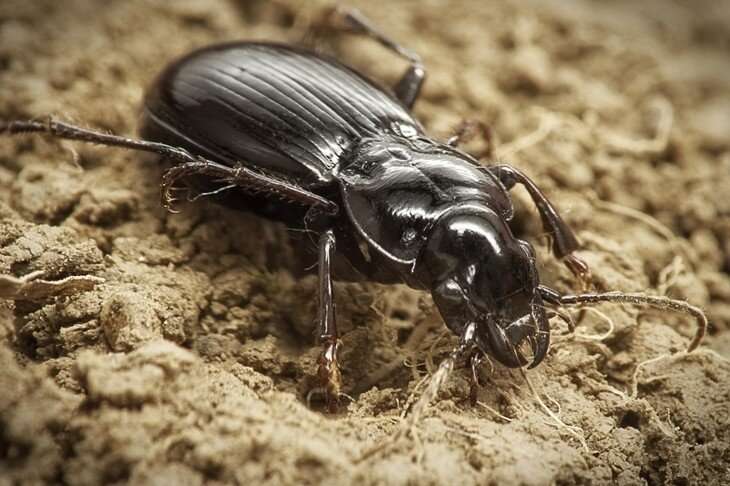
By diversifying their crop rotations to create conditions that promote beneficial, predatory insects to combat pests, farmers can reduce their reliance on insecticides to control early-season crop pests, such as caterpillars, and still produce competitive yields of corn and soybeans.
That's the conclusion of Penn State researchers who conducted a six-year comparison of two types of crop rotations under no-till production. One was a standard corn and soybeans rotation in which preventive insecticides were used twice annually to suppress caterpillars and other pests; the other a diversified rotation of corn, soybeans, winter wheat, and cover crops—hairy vetch or red clover—that used insecticides only as needed.
The study, which is part of a broader, ongoing dairy cropping systems research project, took place at Penn State's Russell E. Larson Agricultural Research Center. Scientists began the larger, interdisciplinary experiment in 2010 to evaluate ecological cropping strategies for Pennsylvania dairy farms.
The results suggest that a high-diversity rotation that supports integrated pest management—often referred to as IPM—can compete with a low-diversity system that includes pesticides, according to lead researcher John Tooker, professor of entomology in the College of Agricultural Sciences.
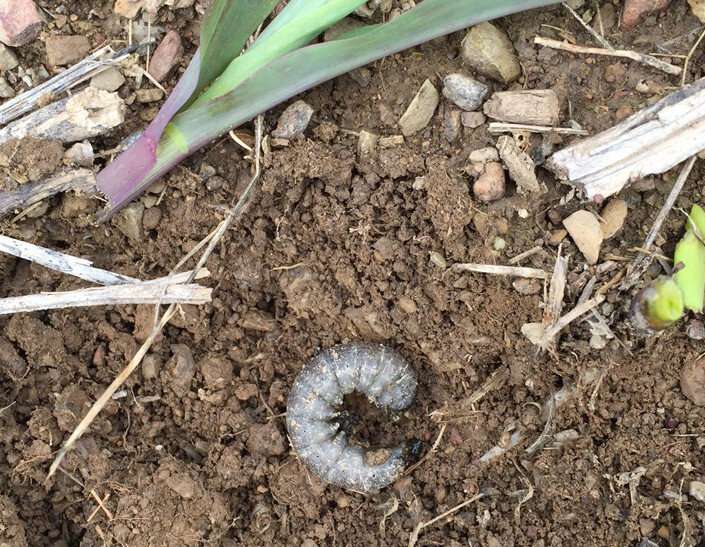
"The research shows that if insecticides are taken out and we let the system stand on its own, it can be productive, and it can be as competitive as the more input-heavy system," he said. "We have not yet explored the economic side, but if you take the next logical step and consider the costs of applying insecticides, you see that if farmers would rely more on ecological interactions, they would benefit financially because they would have lower input costs."
Using IPM to manage the high-diversity rotation, researchers scouted plots during the growing season, generally looking for damage on corn plants. They made a specific effort to quantify the damage from slugs and caterpillars, the most consistently problematic pests in the Mid-Atlantic region, between corn emergence and growth stage.
They set traps to assess slug numbers and analyzed partially eaten caterpillars to estimate predatory ground beetle numbers. If pest populations got too high, they could have applied insecticides, but they needed to use them only once in six years.
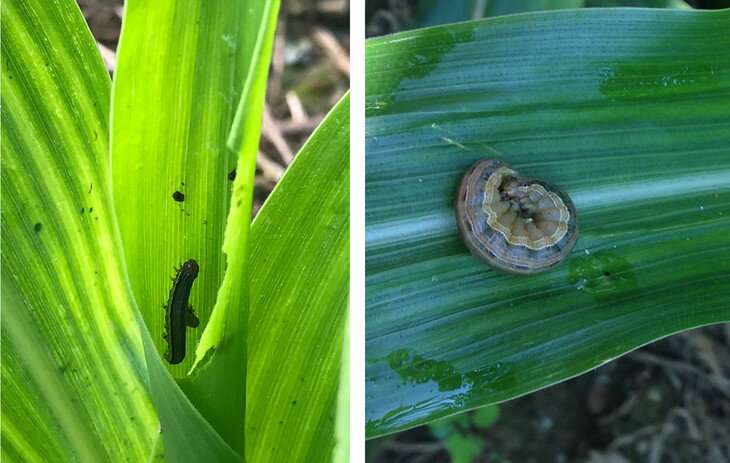
The research team documented that yields produced by the two systems were similar; the more diverse rotations promoting predatory insects and not using pesticides averaged about 10% lower yields.
The findings, which were published recently in Agriculture, Ecosystems and Environment, may convince farmers to consider switching to diversified crop rotations that favor predatory insects and using pesticides only when they have to, but Tooker believes it will be a tough sell.
"Conventional farmers often don't think that the power of the predators in their fields can manifest in this way and make that much of a difference, but our research seems to be showing that they [predatory insects] do," he said. "Predatory insects can make a difference if you let them, but you need to farm with them in mind, and that means using IPM. And for a lot of farmers, that would be forcing them to alter the input pattern they are comfortable with."
-
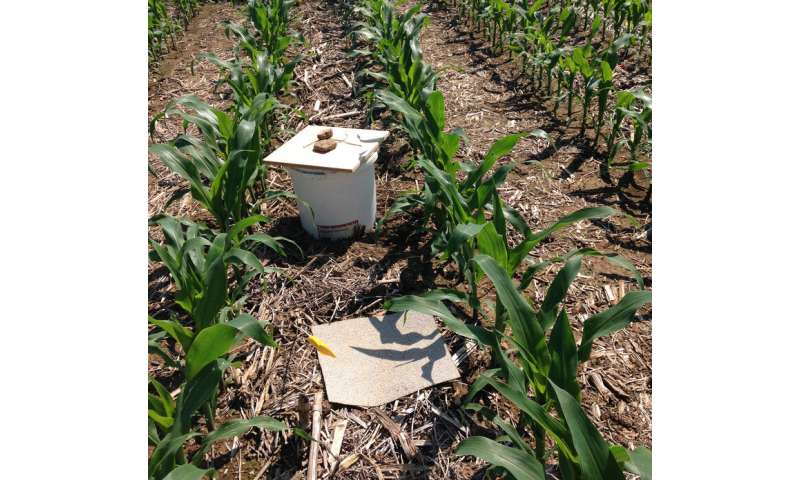
Researchers used traps like these to attract slugs so they could estimate their population and determine how many escaped predatory ground beetles. Credit: John Tooker Research Group/Penn State -
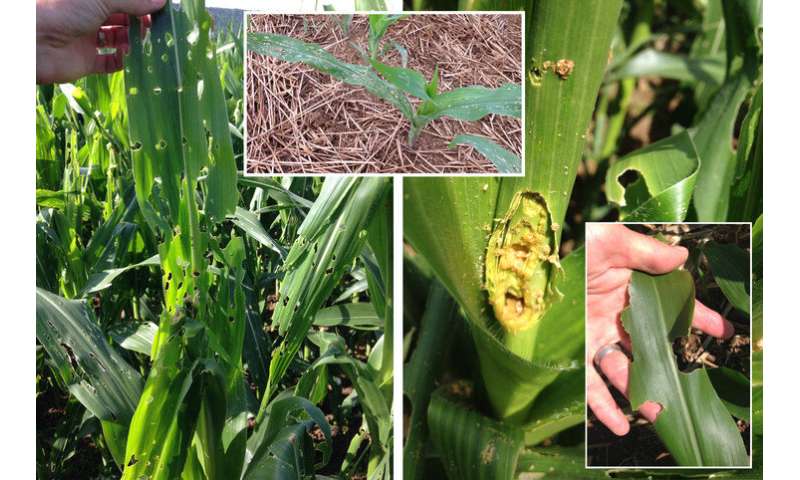
These corn plants show damage from various pests such as aphids, caterpillars, armyworms, slugs and others. This is why farmers need to spray insecticides and unleash predatory insects such as ground beetles to protect their crops. Credit: John Tooker research group/Penn State
That pattern, Tooker noted, typically includes insecticide-coated seeds, insecticides-sprayed preplanting, possibly applying insecticides postplanting, and maybe even another application midseason. It's not uncommon, Tooker added, that during his activities for Penn State Extension he encounters farmers who apply insecticides four times during the growing season.
This research shows that repeated insecticide applications are not necessary to grow a competitive corn yield in Pennsylvania, Tooker said.
"In my mind, our research results mean that farmers can reduce insecticide use, but they need to have the right mindset to want to try—something has to push them in this direction. One thing that I've heard from farmers that may motivate them is their struggle with commodity prices.
"Commodity prices aren't great these days, and farmers often are struggling to make a profit. Not having to pay as much for insecticides would help their bottom lines, but using IPM would still allow them to protect their fields when necessary."
Provided by Pennsylvania State University





















